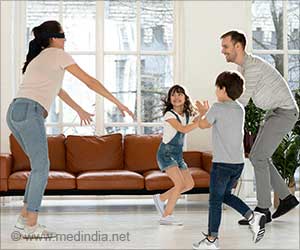Telomeres, which sit on the end of chromosomes seem to lengthen with reduction in sedentary activity, the findings show. Telomeres are the DNA storage units in each cell.

Levels of physical activity were assessed using a seven day diary and a pedometer to measure the number of footsteps taken every day, while the amount of time spent sitting down each day was gleaned through a validated questionnaire. The time spent exercising as well as the number of steps taken daily increased significantly in the group following the exercise programme, while the amount of time spent seated fell in both groups.
Various risk factors for heart disease and stroke also improved in both groups, particularly those on the exercise programme, who also lost a great deal more weight than their counterparts left to their own devices. But increases in physical activity seemed to have less of an impact than reductions in sitting time, the findings showed. The number of daily steps taken was not associated with changes in telomere length, while an increase in moderate intensity physical activity was linked to a shortening in telomere length, although this was not significant.
But a reduction in the amount of time spent sitting down in the group on the exercise programme was significantly associated with telomere lengthening in blood cells. "In many countries formal exercise may be increasing, but at the same time people spend more time sitting," write the researchers. "There is growing concern that not only low physical activity... but probably also sitting and sedentary behaviour is an important and new health hazard of our time." They admit that their study is small, and caution that it needs to be repeated in other larger groups, and in other tissues, such as skeletal muscle and fat cells. But they say that their findings corroborate other research on the impact of time spent sitting down, and conclude: "We hypothesise that a reduction in sitting hours is of greater importance than an increase in exercise time for elderly risk individuals."
Source-Eurekalert









